In major win for Trump, PA’s Abbas signs decree ending ‘pay-to-slay’ system
Reform will bring families of security prisoners and slain terrorists into same welfare system as other Palestinians, be based on economic need; move was largely finalized in Biden era
WASHINGTON — Palestinian Authority President Mahmoud Abbas signed a decree on Monday canceling legislation that conditioned welfare payments to Palestinian security prisoners on the length of their sentences in Israeli jails, in addition to providing stipends to the families of terrorists killed while carrying out attacks.
The decree states that families of prisoners and slain attackers who require welfare assistance will be eligible for stipends based solely on their financial needs, as is the case with other Palestinians.
Israel and other countries have long denounced the stipends that Jerusalem said actively encouraged terror, with critics dubbing it the “pay-to-slay” system.
The initiative to cancel the stipends had been in the works for years, and its pilot program was even quietly launched toward the end of the Biden administration, a source familiar with the matter told The Times of Israel.
Ramallah presented the reform to the US near the beginning of the previous administration, seeking to bring the PA into compliance with the Taylor Force Act — 2018 congressional legislation that suspended US aid to the PA as long as it continued granting the stipends.
The US then facilitated a dialogue with the Israeli government to explain the contents of the reform, the source said, acknowledging that it was met with skepticism in Jerusalem.
There were several points toward the end of the Biden administration’s term in which the PA decision was on the verge of being announced, a second source said, arguing that Israel seemed to be trying to stall the matter. In the months leading up to Hamas’s October 7 onslaught, the Biden administration sought to receive a nod of approval from Israel for the reform, worried that a rejection could lead pro-Israel lawmakers in Congress to follow suit, thereby hampering the reform’s legitimacy in Washington. The second source indicated that Prime Minister Benjamin Netanyahu’s office had dragged its feet on the matter, even as the premier regularly cited the controversial policy to argue that the PA cannot be trusted.
It is unlikely that the reform will satisfy the Netanyahu government, which has pledged to box the PA out of any role in the post-war governance of Gaza.
The Foreign Ministry issued a statement Monday night dismissing the decree “as a new fraudulent exercise by the PA, which intends to continue making payments to terrorists and their families through other channels.”
Israeli law requires the government to conduct a review of the PA’s prisoner payment system at the beginning of every calendar year, so Jerusalem could theoretically wait until early 2026 before deciding whether Ramallah is in compliance with Knesset legislation targeting the PA over its controversial stipends.
The Trump administration may also have different criteria for adjudicating the PA reform, even though it was authorized by career legal bureaucrats under the previous administration.
Biden officials also briefed congressional lawmakers about the reform last year and received support from both sides of the aisle, including Republican Lindsey Graham, the second source said.
The Taylor Force Act requires the US government to review the PA’s compliance every six months.
According to the text of the decree posted on the official PA news agency WAFA, the program to allocate welfare funds will be transferred from the Social Development Ministry to a new fund called the Palestinian National Foundation for Economic Empowerment.
The fund will be headed by current PA Social Welfare Minister Ahmad Majdalani, according to the second source.
A strict criteria system has been put in place to determine eligibility that will be reviewed twice a year, said the second source.
Many families of prisoners and slain attackers who were receiving government stipends will continue to receive financial aid, given the high poverty rate in the West Bank. This has only gone up further since October 7, with Israel ending its permit system to over 100,000 Palestinians working in Israel and the settlements — a key component of the West Bank’s economy.
The practice of paying allowances to those convicted of carrying out terror attacks, and to the families of those killed while carrying out attacks, has been pilloried by critics as incentivizing terror, and held up by Israel as a symbol of PA corruption and its inability to serve as a partner for peace.
Palestinian leaders have long defended the payments, describing them as a form of social welfare and necessary compensation for victims of what they said is Israel’s callous military justice system in the West Bank.
Abbas signed the decree as the US Supreme Court prepares to adjudicate a case in the coming months on whether American victims can sue the PA and its international arm, the Palestine Liberation Organization, for damages due to Ramallah’s payments program.
According to the PA, the decree was made in part to “strengthen the status of the state of Palestine” in the UN and other international bodies and gain further international recognition, as well as “with the aim of restoring international aid programs that were suspended in the past year.”
The move was also designed to stop “the illegal deductions” that Israel made from taxes it gathered on behalf of the Palestinian Authority, the decree added. Neither the English nor Arabic version of the announcement made any reference to the Trump administration or to the United States.
Under interim peace accords reached in the 1990s, Israel’s Finance Ministry collects tax revenues on behalf of the PA and makes monthly transfers to Ramallah, but it has withheld funds over the years due to disputes, including, most recently, in the wake of Hamas’s October 7, 2023, onslaught.
In 2018, Israel passed a law requiring that a sum equal to the monthly stipends the PA pays to security prisoners and the families of slain attackers be withheld from the tax revenues it transfers to the Palestinians.
Israel withheld hundreds of millions of shekels from the PA under the legislation, citing the payments. At the same time, Israel has in the past offered loans to the PA in order to keep it afloat and prevent its total breakdown.
While the previous administration believed that the reform would bring the PA into compliance with the Taylor Force Act, the US would still be barred from directly funding the PA, due to separate US legislation preventing such aid once Ramallah began advancing investigations against Israel at the International Criminal Court.
However, the reform would still theoretically be sufficient enough to enable the US to fund projects that directly benefit the PA.
The decree from the PA on Monday noted that the move should also assist with “the new burdens of helping our people in the Gaza Strip.”
While the effort to reform the PA prisoner payment system has been in the works for years, and was largely finalized under the Biden administration, Ramallah decided to hold off on announcing the move, preferring to save it as a goodwill gesture for the incoming Trump administration.
During the transition between the Biden and Trump White Houses, top PA officials briefed their counterparts in the incoming Trump administration regarding their plan, a third and a fourth source familiar told The Times of Israel on Monday.
However, those two sources believed that the announcement would be put on the back burner following Trump’s declaration last week that he planned to take over Gaza and permanently displace the population. The Gaza proposal sent shockwaves throughout the Arab world, which is now in the middle of a full-throttled campaign against the Trump idea.
A Palestinian official told The Times of Israel during the presidential transition process that Ramallah had learned lessons from the way it dealt with Trump during his first term. Abbas severed ties with the US after Trump recognized Jerusalem as Israel’s capital in 2017, less than a year after taking office. The US proceeded to broker the Abraham Accords, while the Palestinians were left out of the process.
As efforts to include Saudi Arabia in those accords have intensified, Ramallah has worked to boost its ties with Riyadh, hoping that the latter will condition a deal with Israel on a credible and irreversible pathway to a future Palestinian state. Meanwhile, PA officials indicated to Trump aides that they would be prepared to use his 2020 peace plan as a basis for negotiations.
The decree on Monday is Ramallah’s latest effort to improve ties with Washington and amounts to a major victory for Trump, who managed to secure a concession from the PA that repeated US administrations had worked to actualize.🔺
Times of Israel staff contributed to this report.

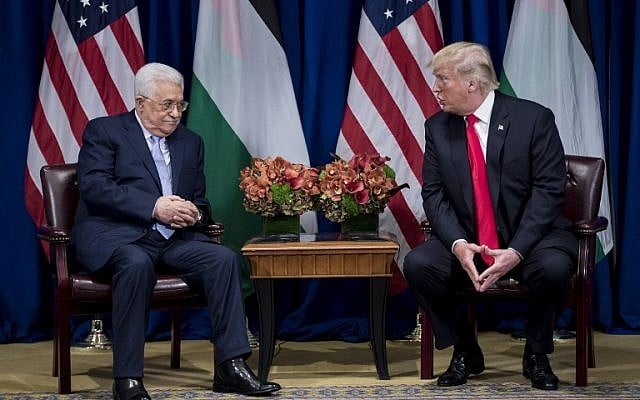
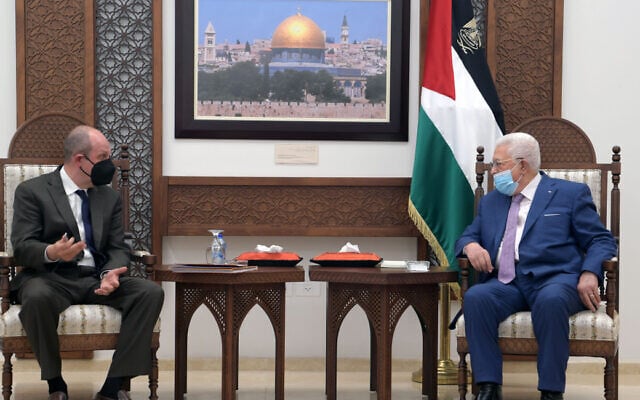
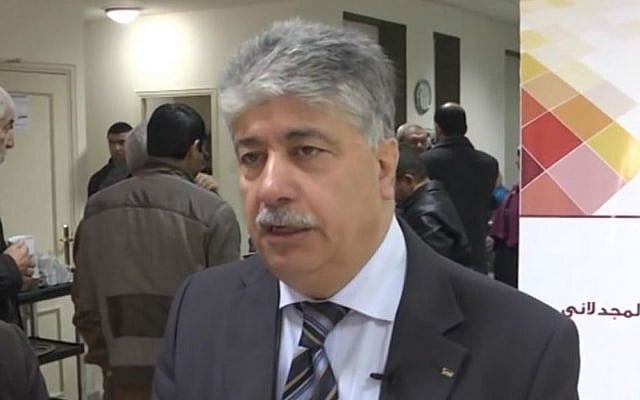
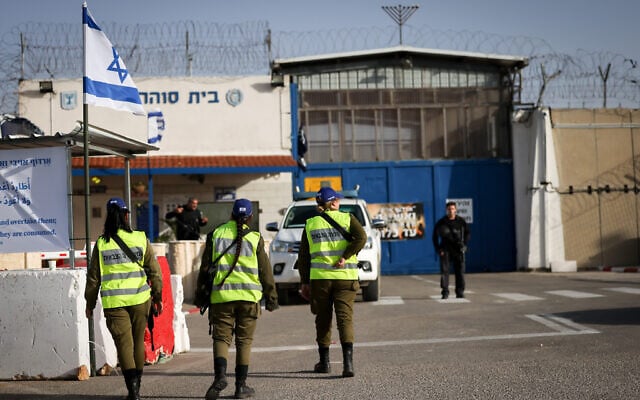
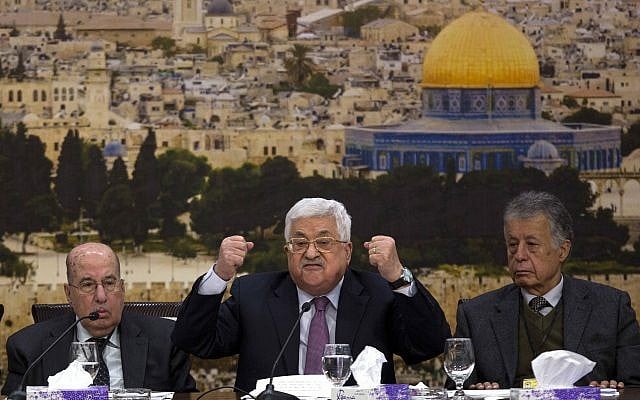
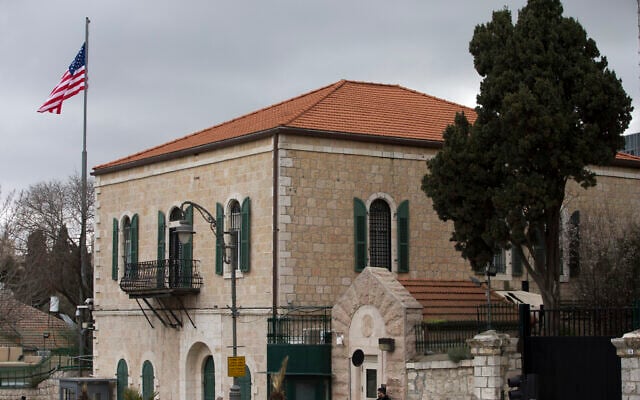





No comments:
Post a Comment